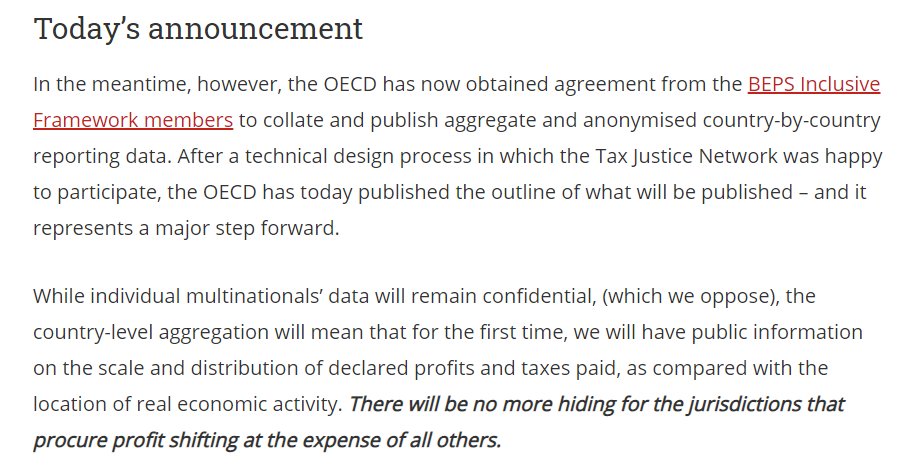Back in the early 2000s, illustrious #taxjustice peeps @jechristensen56 @premnsikka @RichardJMurphy discussed the opacity of multinational companies, including on tax
datafortaxjustice.net/what-do-they-p…
weforum.org/whitepapers/to…

But first, some caveats...
taxjustice.net/2020/05/06/uk-…
Today's publication still likely represents the biggest step forward - so far, ever - in the tax transparency of multinationals.
Kudos to the #taxjustice expert activists who have taken us this far - and will take us further still.



